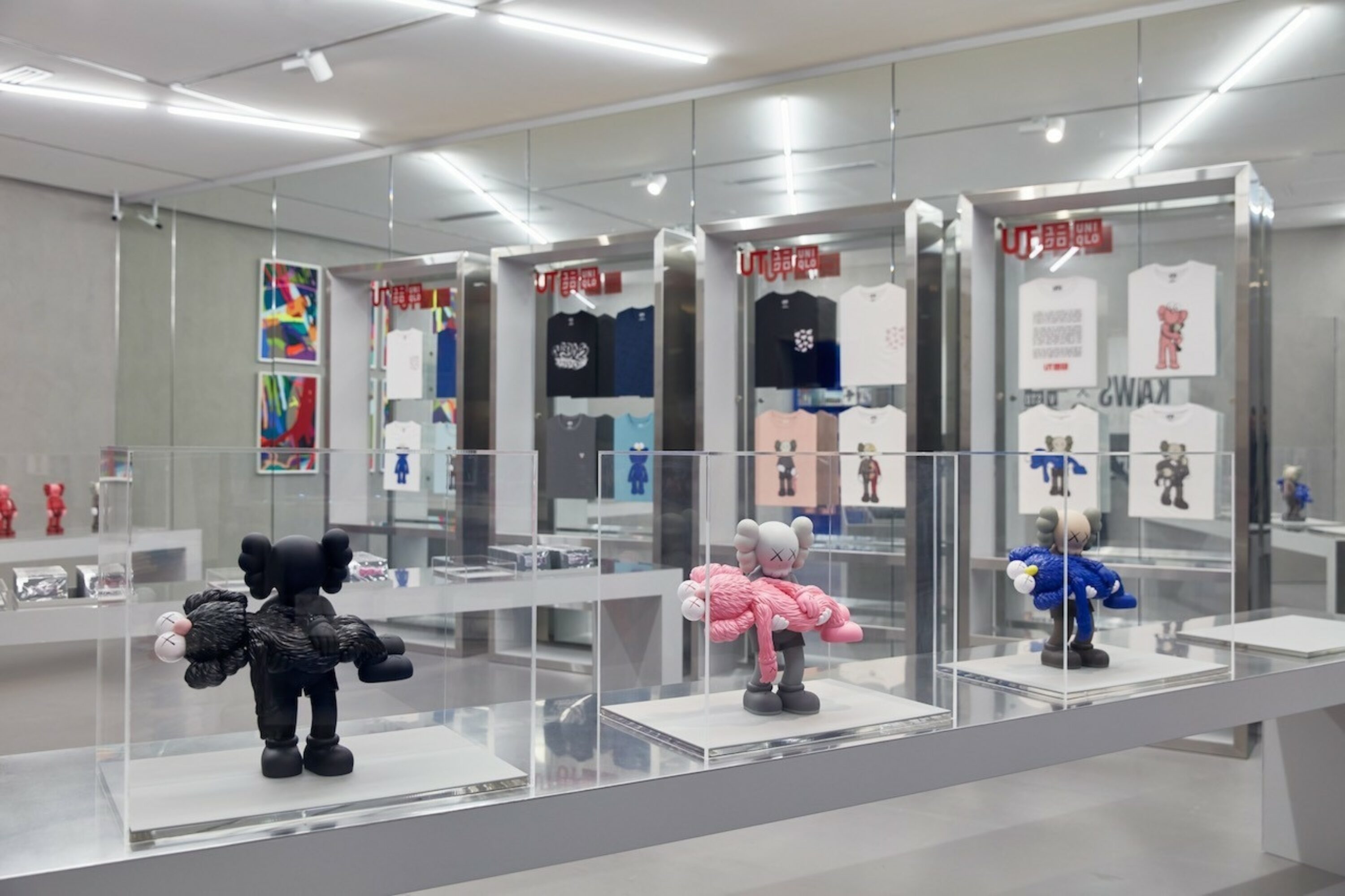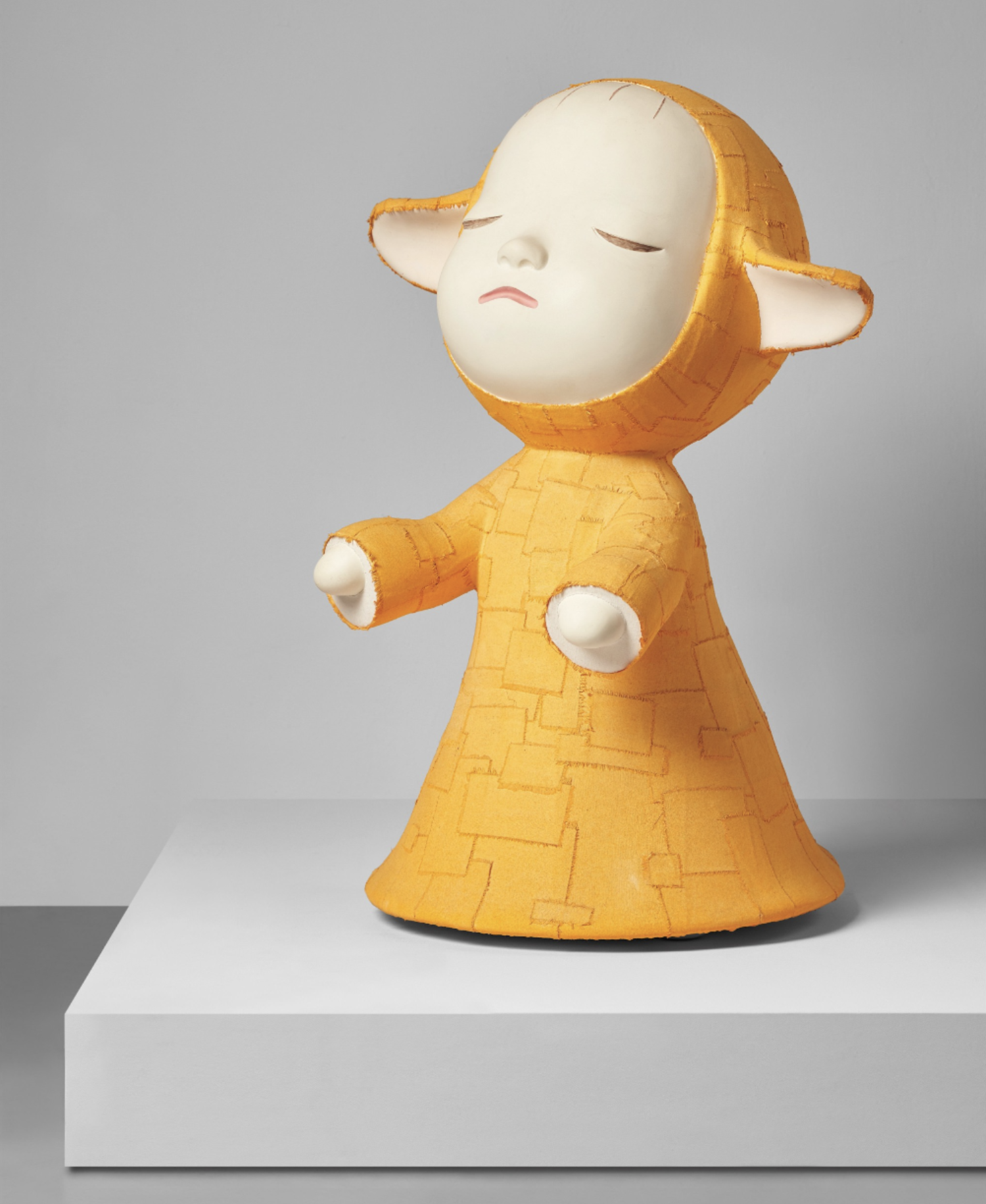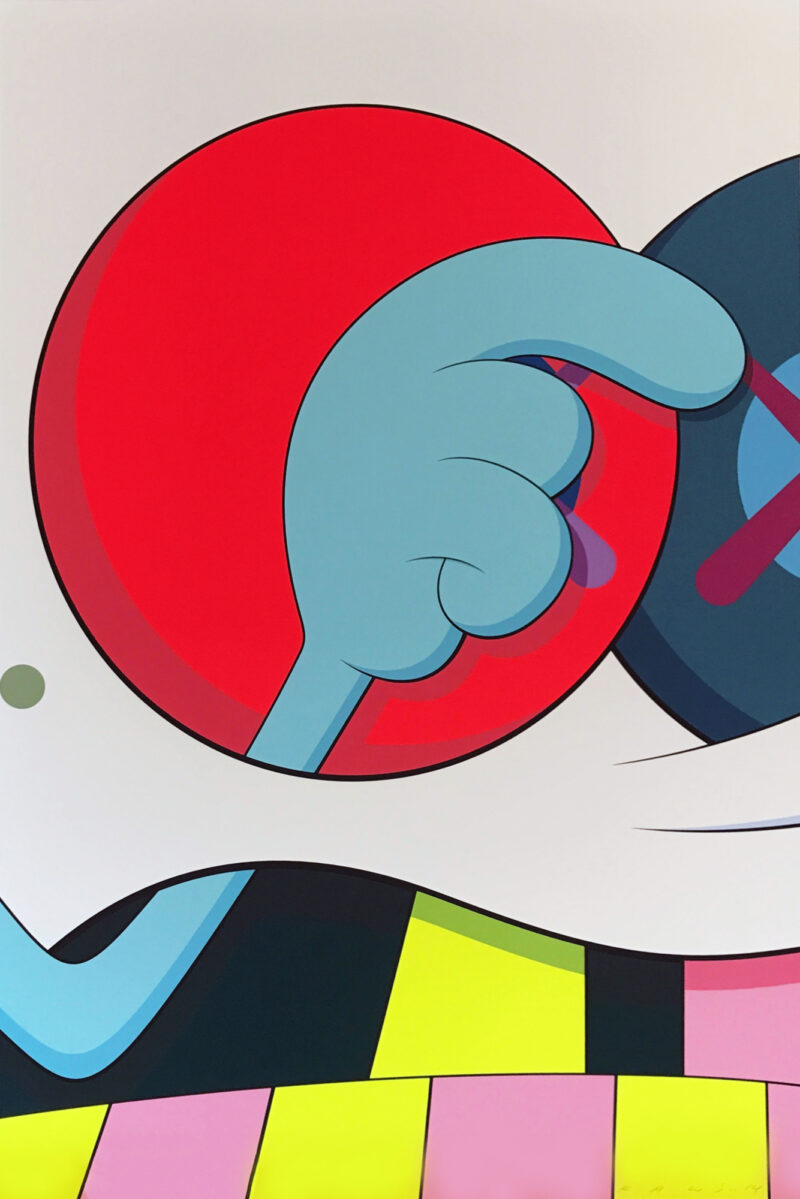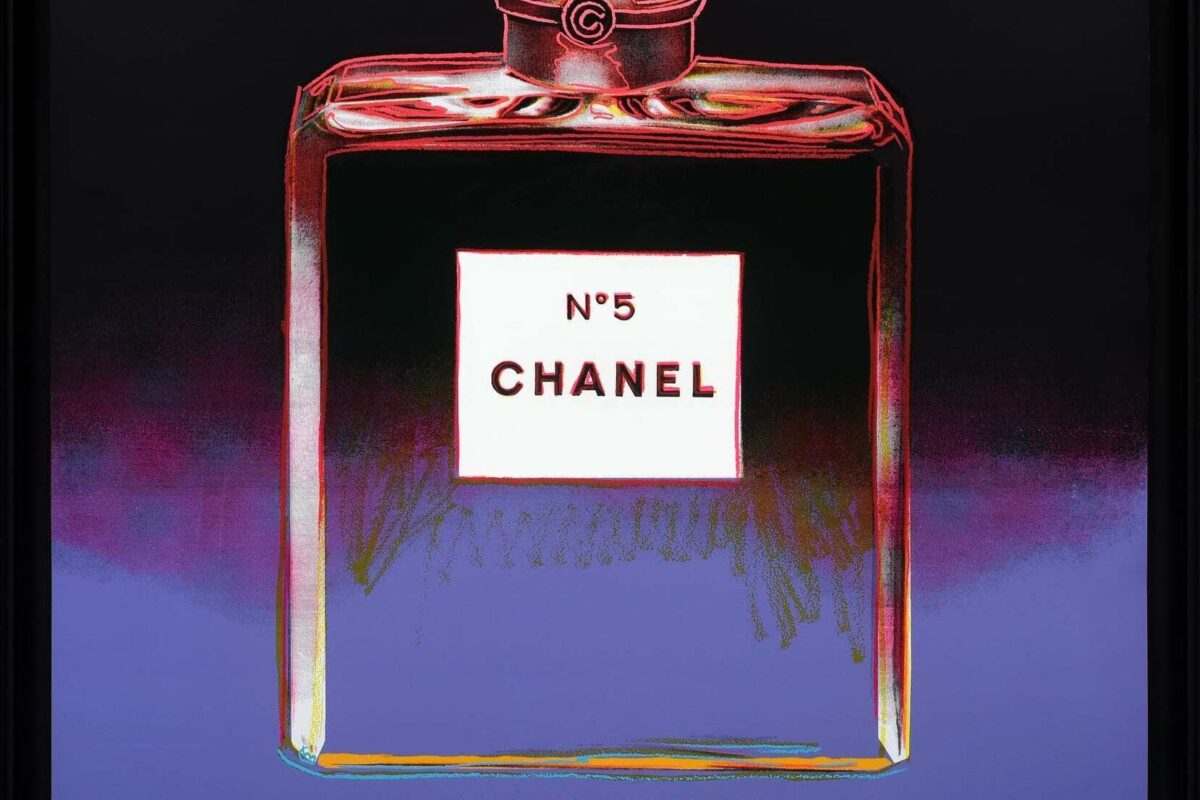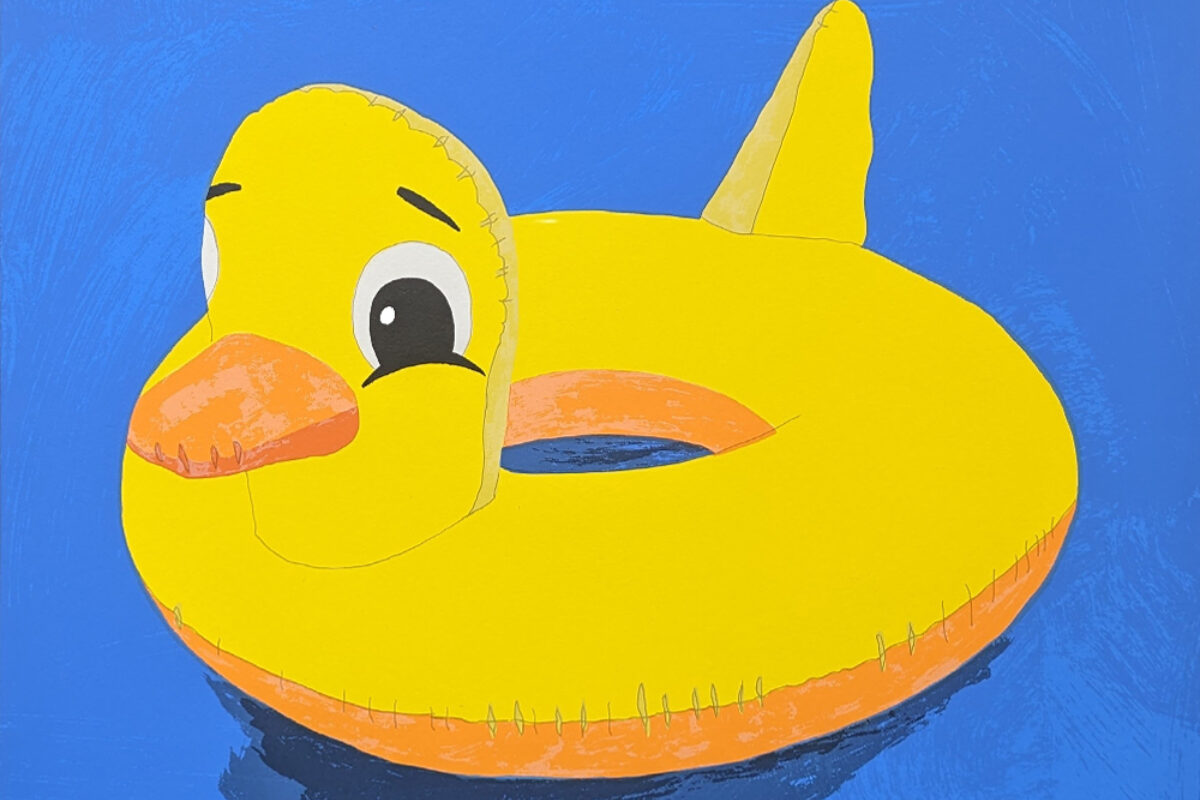Friends for life...
Back in the late 1990s, streetwear afficionados began collecting something to go with their limited edition trainers: cult toys from brands such as Medicom. Among the most coveted were vinyl figurines from a little-known artist called KAWS (aka Brian Donnelly). Based on deconstructed cartoon characters, and sharing the trademark characteristics of Disney figures (including oversized hands and feet and slightly off posture), these Companions were at once familiar and strange, redolent of childhood friends gone wrong. And they quickly became some of the most coveted collectables on the market.
Cult toys had already gained cachet among buyers, who viewed artists such as Michael Lau and James Jarvis as covetable brands in their own right. The Pop Art movement was still in the public consciousness and toy collecting echoed the sentiment that art should reach people who were not au fait with the rarified world of Fine Art. In parts of Asia, collecting these toys also chimed with a new consumerism embodied by trends such as the Japanese craze for gashapon (capsule toys from vending machines).
Though consumer attitudes have changed considerably over the last two decades, the market for toys and collectables has remained strong – in part because the art world has opened up to the medium, but also because of the increased influence and spending power of the original buyers and the crossover of the street scene into mainstream culture. Despite this, many toys and collectables are still available at an accessible price point – so they’re a great way to start collecting work by a favourite artist or diversify your collection.
20 years down the line…
Since cult art toys and objects were born, many established artists have branched out into figures and collectables. Even Jeff Koons, better known for commanding extortionate auction prices, claims his porcelain balloon dogs made in conjunction with Bernardaud were created to make his work more accessible and bring it out of the gallery (though it’s worth noting that these limited edition sculptures still cost from £12,000 upwards).
Donnelly’s Companions, meanwhile, have become instantly recognisable to a huge cross section of the world’s population thanks to a huge Instagram presence, high visibility stunts (including floating a gigantic inflatable Companion in Hong Kong’s Victoria Harbour back in 2019) and popular exhibitions such as this year’s What Party at the Brooklyn Museum. Other KAWS characters including BFF and Chum have also entered the collectables scene, and demand for Donnelly’s characters continues to grow. Despite their appreciation, the toys still represent good value for money.
Big in Japan…
The popularity of toys in Asia means that Japanese artists have been quick to embrace the trend. In the case of Takashi Murakami, collectables are a key part of his practice. His bright, larger-than-life characters – such as Mr. DoB – lend themselves to tactile, 3D renderings, which sit well with other pieces in wider contemporary art collections and echo his most expensive sculptural works.
Yoshitomo Nara’s renderings of other-worldly children also translate well into collectables, and his small wooden sculptures are increasingly coveted. One of Nara’s little wooden Mori Girl sculptures (from an edition of 200 made in 2012) sold for around £35,000 at Phillips Hong Kong in June, fetching almost five times its high estimate: open editions of his work are more readily available, and a recent edition of three little girls drumming sold through the website of toymakers How2Work for around £250. Yayoi Kusama, meanwhile, creates limited edition resin and ceramic versions of her trademark pumpkins that appear like talismans, warding away the threat of self-obliteration (they’re also pleasingly tactile, complement each other and are available at a range of price points, making them easy objects to collect).
Safe keeping…
Sadly, toys and collectables are among the easiest art forms to fake. If you plan to invest, make sure you have a certificate of authenticity or a paper trail that clearly shows proof of purchase from your seller. Official KAWS merchandise also comes with a hologram label on the box that’s hard to fake. Check the size of your figure too: standard sizes are published on the internet and fakes are often slightly off. If you can view it in person, so much the better: you’ll be able to feel the weight and quality of the piece. And if you are using your collection as an investment, it’s worth considering limited rather than open editions, as these appreciate better. Once you have your piece, don’t be tempted to throw away the packaging: just like with trainers, the box needs to be kept pristine in order for the toy to retain its value.
The good news is that collecting toys and sculptures is a fun, low-maintenance way to start or enhance a collection. Storage or display is easy, toys are harder to damage than prints or originals, and a buoyant market means that you can always sell if you have second thoughts.
To talk further about toys or collectables, or find out more about items that we currently have at the gallery, contact us.
